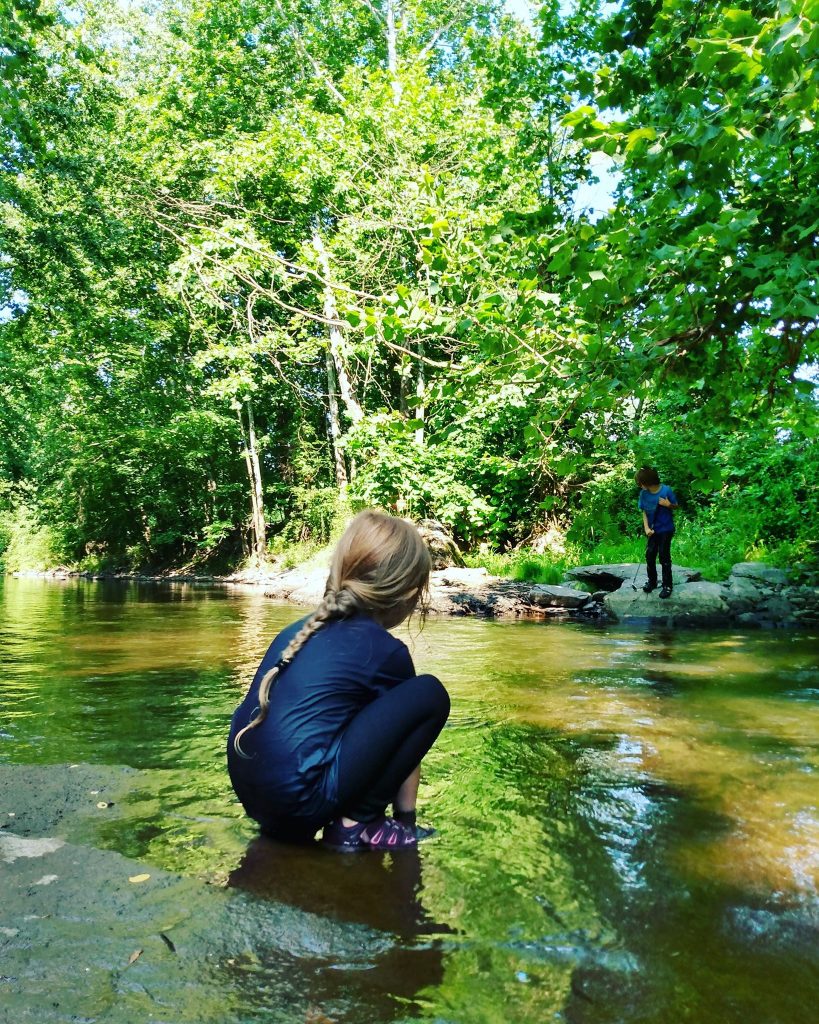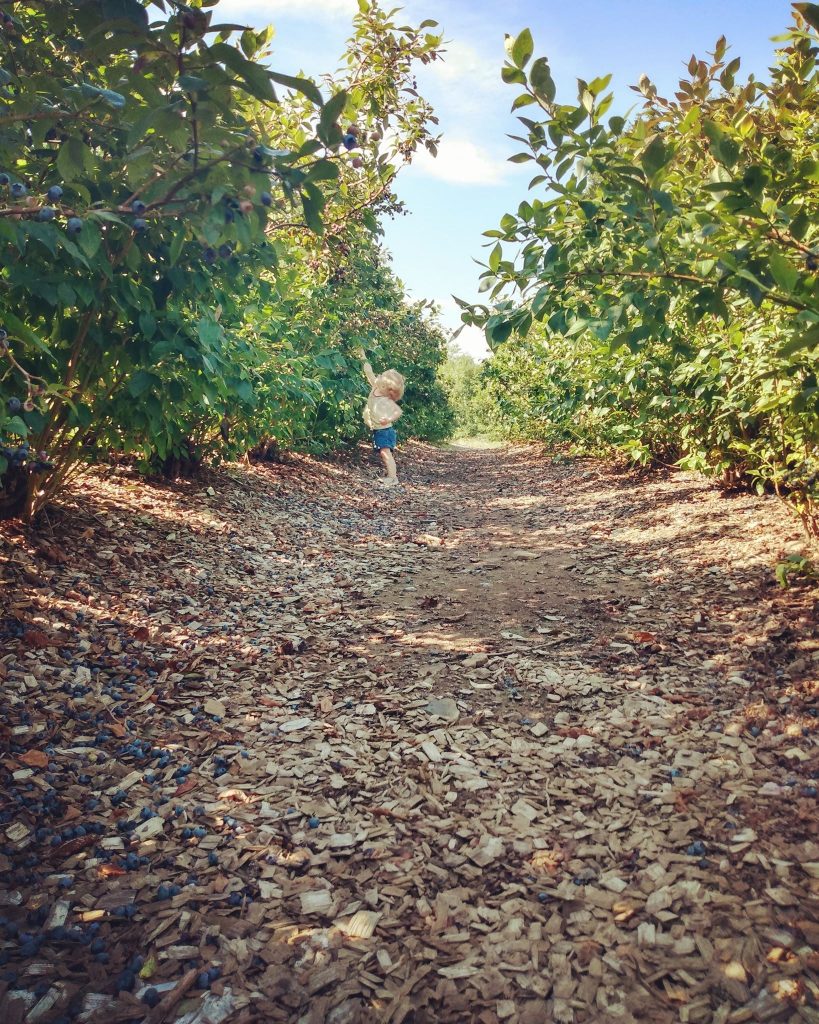I’ve always been a check-off-the-boxes girl. Give me a list, and I’ll work to cross everything off. Give me a deadline, and I will sacrifice my sanity to get the job done in time. In school, I was the kid who worked to get 100% on every test and always did the extra credit projects. In college, I completed a 5-year double-bachelor program in 4 years with honors. The term “slow schooling” would never have crossed my mind.
For better or worse, this tendency to “get things done” at all costs has manifested itself in my homeschool. I am most satisfied when my kids have completed every assignment. I try to push them a little further than they think they can go, and I want them to do their best every time. Any resistance to schoolwork leaves me frustrated and frazzled.
(Ironically, I am also drawn to unschooling… but that doesn’t always override my obsessive inner compulsion to make sure total completion of schoolwork is achieved. It’s part of my own learning curve, I suppose. )

Regardless, life doesn’t always agree with how we’re wired.
Every once in a while, there’s an event that smacks you upside the head and forces you to slow down.
In July, my youngest daughter- just 20 months old- grabbed a cup of hot tea off of the counter and ended up hospitalized for four days for her burns. After coming home, life was put on hold for about a month while we tended to daily dressing changes, sleepless nights, and a new clinginess that had never possessed our toddler before this happened.
It could have been much worse. She healed well without any major complications and we were so incredibly thankful.
But the event wasn’t without its effects on our family. Our older kids have needs too, and it was hard for us to meet them as well while we were so consumed with caring for our littlest one. There are a lot of things that we love to do as a family- like spending time in our creek, for example- that we weren’t able to do while the baby was healing. The kids had to do a lot of waiting- waiting for healing, for us to be ready, for us to do something fun together.
Things didn’t feel normal for any of us.
In many ways, my kids sacrificed a good portion of their summer to the needs of our youngest. It’s a good and important lesson, but it wasn’t easy for them.

An experiment in slow schooling
With the advent of a new school year, I find myself thinking about a different way to approach our academics to help our kids recover from a difficult summer.
What if I could forget about checking off all the boxes? Could I resist pushing and plowing ahead? Would I be okay with letting some things go to help create a more nurturing learning environment?
It’s not so much that I want to give up all curriculum and assignment lists. I do want to continue a learning routine, because both the kids and I do better when we have that in place.
What I am looking for is a slower way of schooling.

What is Slow Schooling?
I have not heard this term being talked about widely in the homeschool world, and I am still learning about it myself. However, I believe many of the movement’s core principles align with homeschooling ideals.
If I could sum up my current understanding of the term, I would say that slow schooling is a reaction against the following practices:
- “Homogenizing” education.
- Using curricula full of decontextualized information and exercises.
- Using standardized assessments and criteria to determine student learning or student success.
- Removing opportunities for creative dialogue and engagement with the material by adhering to the plan in the curriculum.
- Cramming too much material into too short of a time span.
“Slow-schooling” has been contextualized within the slow movement, for example, or in this somewhat dated but intriguing call to resistance against a “hamburger” education by Maurice Holt.
In general, slow schooling has the following characteristics:
- The education is process-oriented more than results-oriented.
- Earnest student engagement and self-direction are highly valued.
- It is recognized that every student is unique, so his or her learning path will be also.
- The education should be contextualized in real life, rich materials, and meaningful experiences.
- It aims to produce thoughtful, ethical, and engaged students.
All of these concepts having been giving names to some of the internal feelings I had as an education major and teacher. They’re some of the reasons I wanted to homeschool my own kids, though I couldn’t quite articulate them when we were first starting.
I know that for me, implementing these concepts will take a lot of practice. So I’m starting with just 3 basic goals.

1. Food for Learning, Not a To-Do List
In his book How Children Learn, John Holt said of children, “Their learning does not box them in; it leads them out into life in many directions. Each new thing they learn makes them aware of other new things to be learned. Their curiosity grows by what it feeds on. Our task is to keep it well supplied with food.”
Is it just me, or is keeping kids’ curiosity well supplied with food a taller order than sequentially completing a curriculum?
Certainly, I could make sure we completed all daily lessons and assignments. But would that necessarily mean that I was nourishing my children educationally?
You can eat simply for the purpose of filling your body and keeping hunger at bay. Any number of unpalatable edibles will do the job of putting calories and nutrients into the body. But when you eat for the experience of eating… that’s different! You experience the flavors, the textures, the sequence of appetizer to meal to dessert, the conversations around you, the colors at the table… You chew slowly, you savor everything.It’s much more than mere calories. It’s a pleasurable, multi-sensory encounter that won’t soon be forgotten.
What if, instead of checking off the boxes, I focused on giving my child an educational “meal” worth remembering? Could I work on nurturing the learning experience? What if we relished the questions, challenges, rabbit trails, and little successes? Could I make our exploration enjoyable and memorable? Could I slow down enough to enjoy the experience, like a gourmet dinner, instead of pushing ahead, like I’m rushing through the drive-thru?

2. Not Everything Every Day
Part of slowing down and enjoying the experience means that I need to let go of doing every subject every day. Oh, I’ve heard the advice a thousand times… you don’t need to do everything every day. But I still feel twitchy when I leave subjects undone.
You see, sometimes we delude ourselves into the idea that checking off assignments completed means the kids are actually learning something.
Being a warm body who sits through a lesson and writes words on a worksheet doesn’t mean that you’ve actually engaged with or absorbed any of the material.
Real learning can happen in a variety of ways. Sometimes it does happen in a sequential, to-do list type of way. But sometimes it happens when we get caught up extending the science experiment 45 minutes longer than scheduled, or when we suddenly stop our math lesson part way through because we saw a vulture perched on the telephone wire outside, or when we keep reading the next chapter and the next chapter despite our looming quiz that we will surely miss if we don’t stop reading.
As part of my slow-schooling experiment, I want to relieve myself of the pressure to check off everything every day.
If we get to everything on our list, that’s wonderful. But if my kids dive into an activity or a particular interest, then who I am to interrupt that? Why put a halt to their exploration just for the sake of moving on to the next subject?
Checking off my to-do list should not take precedence over the actual learning taking place. I want to prioritize the moments and depth of learning more than the total number of subjects accomplished in one day.

3. Togetherness
I’ve found that too many times in my efforts to “get things done,” I push my kids away.
“Please go outside so mama can cook in peace.”
“Can you just go in the other room while I type this?”
It’s not all bad- sometimes we all need a moment of silence- but I forget to enjoy the togetherness we have while they are home. How fleeting these moments are, of them singing while I’m trying to work, of them chit-chatting in the middle of math, of them wanting to cook by my side. I have been told repeatedly of how quickly they grow. “Just blink,” says my mother-in-law, “and they’ll be getting married.”
I want my children to have memory of a mother who invited them into her world, not a mother who shoved them into their own spaces.
Yes, I will want and need time to myself- and that’s nothing to feel guilty about. But to me, part of slow schooling is to learn to relish the togetherness.
My hope for slow schooling
I want slow schooling to be an exercise in enriching and enjoying the learning process more fully. I want to relish our education like a beautiful feast, not cram it in like a bag of chips or swallow it down like a handful of pills. I hope it will help me to be more aware of when my children are actually learning, and to more deeply appreciate each of them and their unique strengths and weaknesses.
I’ll be sure to come back and give an update. What about you? Has anyone else ever heard the term “slow schooling” or tried it in their own homeschool?






I appreciate the sentiment of this post, and it made me remember the brief moment of inspiration I felt at the beginning of COVID when my public-schooled kids were going to be learning from home for the first time. This is what I imagined could be possible! This is what I hoped for! I imagined going on forest explorations, planting gardens, building projects, cooking food together… but then they got their assignments and spent the next 3 months in front of screens, with us separating them because they were talking to each other and checking their browser history to make sure they weren’t just watching YouTube. With a new year of remote learning ahead, I found this post and feel inspired again that I don’t have to reinforce those rat-race values, and I do still hope that I can help my kids discover their curiosity!
Aww, thank you Deb. I’m so glad this was inspiring to you. I totally get it– I have these ideals and I have to constantly re-train myself to not just be caught in the “rat-race,” as you said. You definitely can foster that curiosity! I think the important thing to remember is that every day is fresh, and even when things don’t look how we want them to look, it’s never too late to start over and try again. <3
I can so relate your experience..slow schooling esp when life gets complicated has so many merits! Thanks for sharing your thoughts 🙂